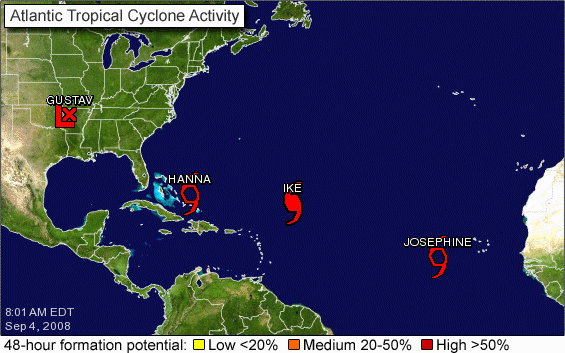As the Earth warms, the melting of its two massive ice sheets—Antarctica and Greenland—could raise sea level enormously.via SolveClimate.com.
Last month's earthquake in Haiti brought out two sides of Bahamians: the all-too-common bigotry that holds tight onto what we've achieved over the past forty years and refuses to share our good fortune with others, and a generosity and compassion that signals a possible change in the way we talk about ourselves, our country, and our neighbours.What struck me, though, was the almost unquestioning subtext of both: the growing-old refrain that we are blessed, we are special, God has smiled upon us, and therefore we must either keep that blessing selfishly to ourselves or spread it more generously than we have done in the past.And we've gone off to thank God, to congratulate ourselves, that we were not so unfortunate as to have had an earthquake here in our land, that we are mostly outside the earthquake zone (except Inagua, which is close enough to the fault that shook Port-au-Prince to have experienced the earth's shaking at different times in its history).What I wonder about, though, is the question of why in all our discussions about blessedness, in all our wrangling about who-won-Elizabeth, in all our self-centredness and short-sightedness, no one -- not during the debates, not during the discussions on the air, nowhere, not even during the Copenhagen talks last year -- has raised the issue that should have every Bahamian deeply concerned: the question of the impact that global warming will have on ocean warming, the melting of the ice caps, and the eventual rising of the seas.Now it's possible for us to not-believe all the science about global warming. I myself, while accepting the research and the results, and believing entirely that the earth's climate is experiencing some major changes, am vaguely sceptical about the stated causes of climate change, and am also not always convinced about the predicted results of it.BUT. One thing that isn't in dispute at the moment is that the ocean temperature is currently rising. Or, to be more precise: "July 2009 was the hottest month for the world's oceans in almost 130 years of record-keeping" (Seas at Risk.Org); and that scientists are noticing a shrinkage of the ice sheets of both Greenland and Antarctica.Here's what that means:
If the Greenland ice sheet were to melt, it would raise sea level 7 meters 23 feet. Melting of the West Antarctic Ice Sheet would raise sea level 5 meters 16 feet. But even just partial melting of these ice sheets will have a dramatic effect on sea level rise.Senior scientists are noting that the Intergovernmental Panel on Climate Change IPCC projections of sea level rise during this century of 18 to 59 centimeters are already obsolete and that a rise of 2 meters during this time is within range.via Melting Ice Could Lead to Massive Waves of Climate Refugees | SolveClimate.com.
Here's what that means to our country.The Bahamas is flat, low-lying, with few points on any island that can be considered high ground. Our highest point, way away on Cat Island, is 206 ft (63 metres) above sea level. But what's perhaps more worrying is that our fresh water sources are universally fresh water lenses, which rely to some degree on the stability of the salt water levels to continue to provide us with fresh water levels. Consider the fact, too, that New Providence gets its fresh water barged in from Andros (having long outgrown/contaminated the local freshwater lens, which was once considerable for a Bahamian island, but which can in no way support Nassau's population of a quarter of a million people, give or take), and that Andros is one of the flatter, lower islands. We don't know what impact rising sea levels might have on that.So it's not inconceivable that rising sea levels will turn Bahamians back into what for the past three generations we have not been: migrants, refugees, emigrants in search of dry land. It's not inconceivable that Atlantis, for the past decade or so our "saviour", may be what we actually become one of these days -- a sunken country, our property reclaimed by the sea. One of these days, The Bahamas may become just a memory to be kept alive by those most reviled of us all -- our artists.Just saying.



